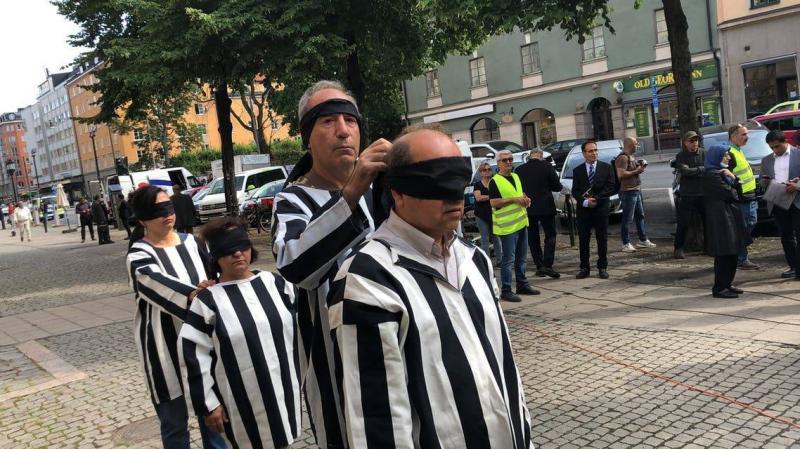Under the title "Iranian Ambassador Meets Prisoner, Accuses Sweden of Rights Violations!", the Al Arabiya website reported that Iran's ambassador to Sweden, Hamid Masoumi Far, announced that he managed to meet with an Iranian citizen imprisoned in Sweden after 20 days of follow-up. Although the ambassador did not mention the prisoner's name, he was apparently referring to Hamid Nouri, who is being held there and is on trial for his alleged involvement in the mass executions of the summer of 1988.
Masoumi Far claimed in a tweet, without providing any details or evidence, that the Iranian government objected to what it called "violations of the prisoner's rights, obstruction of medical examinations, and the practice of physical and psychological torture" in this case, announcing he would be following up on his condition, according to his claims.
He also revealed that a complaint had been filed with the judiciary by lawyers, and in a memorandum to the Swedish Foreign Ministry and Ministry of Justice, they called for an independent investigation into the alleged violation of the Iranian citizen's rights.
Notably, Hamid Nouri is accused of participating in the mass executions of political prisoners as the former assistant prosecutor at Gohardasht Prison in Karaj in 1988, a charge that Nouri denies. He was arrested on November 9, 2019, during a direct flight from Iran to Stockholm Airport.
So far, five sessions of Hamid Nouri's trial have been held in a Swedish court, and in addition to the matter of the executions, the trial also includes issues such as the torture of prisoners and the daily flogging of political prisoners five times.
Furthermore, Hamid Nouri's trial will continue until April 2022, making him the first Iranian official tried in a foreign court for involvement in issuing death sentences in the summer of 1988, which resulted in the deaths of about 5,000 prisoners who were serving sentences under previous rulings.
It is worth mentioning that Iranian President Ebrahim Raisi is also one of the main accused in this case through his membership in the ruling committee known as the "Death Committee." It is important to note that Sweden is known for its independent judiciary and is one of the countries most considerate of prisoners' rights, providing them with the best facilities.




